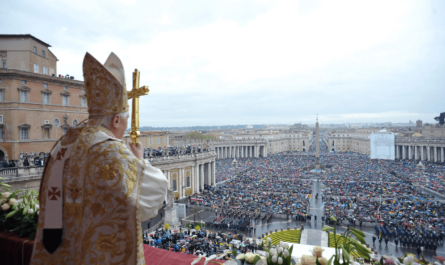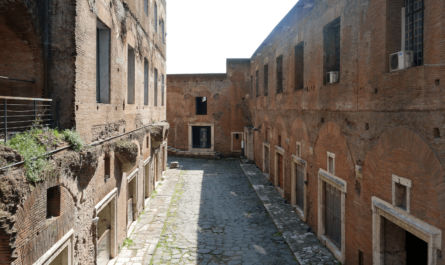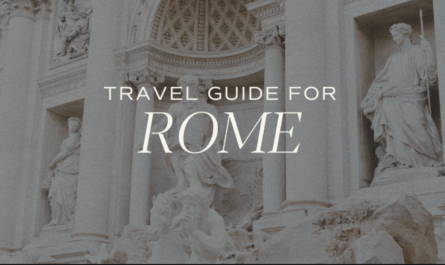When planning a Rome trip in Italy, one of the first questions to consider is, “How many days should I spend in Rome?” Although this question is common, it’s not easily answered. This guide aims to assist you in determining how much time you need in Rome and how to make the most of your visit.
Are you preparing for your Rome adventure and wondering about the ideal duration of your stay? If your time in Italy is limited or your vacation plans are fixed, deciding how long to spend in each destination can be challenging. But truly, how many days are necessary in Rome? Is two days sufficient? What about three?
Our goal is to simplify your Rome trip planning by detailing how much time you’ll need for the city’s most renowned landmarks, estimating travel time, and offering valuable tips to help you save time.
How Many Days in Rome Trip Is Enough?
Determining the right number of days to spend in Rome depends on your personal preferences and schedule. If you’re only spending two weeks in Italy, dedicating at least four days to Rome is recommended due to its vast size and rich historical and artistic heritage.
However, if your trip to Italy is longer or if Rome is your sole destination, spending at least a week in the city is ideal. This timeframe allows you to visit major sights, explore museums and attractions, discover lesser-known neighborhoods, and even take a day trip.
Can You Visit Rome in 1 Day?
If you’re on a layover with no flexibility, make the most of your single day in Rome. Yet, if you have the option to extend your visit, remember that one day is quite brief for experiencing all that Rome has to offer.
With just 24 hours in Rome, you can explore the Centro Storico, visiting open-air artistic and historical landmarks. However, you might not have time to enter attractions and will mostly be walking.
If it’s your first visit, focus on Rome’s historic center, which is rich with art and history, from churches filled with masterpieces to grand palaces. Without entering the Colosseum, you can still view Ancient Rome’s remains by strolling along Via dei Fori Imperiali and enjoying views from Capitoline Hill.
Is 2 Days Enough in Rome?
For a weekend in Rome, while not sufficient for a comprehensive exploration, proper planning allows you to see much of the historic center and visit several major landmarks.
Allocate half a day to explore the Colosseum, Roman Forum, and Palatine Hill. For museum enthusiasts, two days can accommodate visits to the Capitoline Museums, Museo Nazionale Romano in the Diocletian Baths, or art collections at Palazzo Barberini and Galleria Borghese.
Is 3 Days Enough to Visit Rome?
Three days in Rome strikes a balance between a long weekend and a brief holiday. Although it won’t cover every aspect of the city, three days offers a chance to enjoy your visit without rushing.
You can explore Ancient Rome’s archaeological sites, admire Renaissance and Baroque art in the historic center, and visit key Vatican landmarks. With a well-planned schedule, you can even include a walk through Trastevere and a leisurely meal there.
Are 4 Days in Rome Too Much?
Four days in Rome is not excessive for such a large city filled with historical and artistic treasures. It’s a good duration to fully experience the city, allowing time to explore museums, enjoy a rooftop drink, or take a cooking class.
With four days, you also have the opportunity to take a day trip to nearby regions like Lazio, Umbria, or Tuscany. This extended stay lets you explore more of Rome’s attractions and engage in additional activities.
Should I Spend More Time in Rome or Florence?
Based on my experience, you should allocate more time to Rome than Florence. Rome’s larger size and its extensive historic center mean more time is needed to explore its neighborhoods and historical sites.
While both cities offer fantastic food and culture, Florence’s sites are generally more compact and easier to access compared to Rome’s sprawling layout.
Is Rome a Walkable City?
Rome is quite walkable, particularly in the city center, where you can discover numerous art pieces and historic sites along the way. However, given the city’s size, public transport can be helpful if you need to reach farther neighborhoods or if time is limited.
How Can You Save Time in Rome?
To maximize your time in Rome, consider these strategies:
- Join a Tour: Opt for tours that showcase key landmarks and offer fast-track entry, especially useful for high-traffic sites like the Vatican Museums and the Appian Way.
- Buy Skip-the-Line Tickets: Purchasing tickets in advance for popular attractions helps you avoid long queues.
- Use Public Transport: To save time, use Rome’s metro and buses, especially if traveling to distant neighborhoods.
- Stay Near the Metro: Booking accommodation close to a metro station speeds up travel across the city.
- Eat on the Go: Enjoy Rome’s street food if you’re pressed for time, leaving sit-down meals for the evening.
- Start Early: Begin your day early to visit attractions before they get crowded and to cover more ground.
What Landmarks Take More Time in Rome?
Here’s a guide to how long you might need at various landmarks:
- Colosseum: Allocate 1 to 2 hours to explore this iconic structure.
- Colosseum + Roman Forum and Palatine Hill: Expect to spend 4 to 5 hours on this extensive archaeological site.
- Vatican Museums: A visit will take 3 to 5 hours, depending on how many sections you explore.
- Saint Peter’s Basilica: You might need 30 minutes to 2 hours, including a visit to the crypt.
- Galleria Borghese: Plan for at least 2 hours for this rich art collection.
- Musei Capitolini: About 2 hours for a thorough visit.
- Museo Nazionale Romano – Diocletian Baths: Allocate around 2 hours.
- Baths of Caracalla: Expect to spend 1 to 2 hours here.
- Rome Catacombs: Plan for at least 2 hours per catacomb, more if joining a guided tour.
These estimates help in planning your visit to Rome, ensuring you make the most of your time in this historic city.



